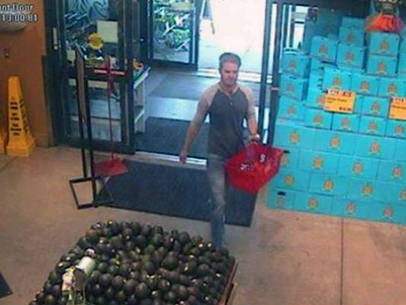From the books they left behind, we know that ancient people from all cultural and religious backgrounds feared that their enemies might poison their food. Our fear that our enemies might poison our food supply increased after airplanes were used as missiles to attack the United States on Sept. 11, 2001. That’s why food defense has been on the agenda ever since the historic Bioterrorism Act became law in 2002. Now, however, the largest domestic and foreign food businesses serving the U.S. are about to have a new Food Defense Rule to follow as a result of the Food Safety Modernization Act (FSMA). 
- bulk liquid receiving and loading;
- liquid storage and handling;
- secondary ingredient handling (the step where ingredients other than the primary ingredient of the food are handled before being combined with the primary ingredient), and,
- mixing and similar activities.
 Like HACCP planning, once vulnerabilities are assessed, the food defense planning called for in the rule would require written mitigation strategies to protect against them. Scheduled to be published in final form around June 1, the rule is not expected to apply to farms, including dairy farms, dry holding or packing facilities, or animal feed or alcoholic beverage manufacturers. Nor is it likely that businesses with sales of less than $10 million will be covered. While food has not been turned into a WMD, food items are sometimes intentionally poisoned. Kyle Bessemer, 29, of Ann Arbor, MI, was charged earlier this month with four felonies after he admitted to spraying mouse poison on open food bars and produce sections at several local grocery stores. Bessemer has been charged with two felony counts of poisoning food, drink, medicine or water supply causing property damage and two felony counts of poisoning drink, medicine, or water supply. His next court appearance will be a competency hearing on July 21. The one large-scale bioterrorism attack on the U.S. where food was the weapon of choice came in The Dalles, OR, in 1984. Two top lieutenants of the cult leader Bhagwan Shree Rajneesh dropped Salmonella into the salad bars of 10 local restaurants. The successful food poisoning of 751 residents filled hospitals from The Dalles to Portland and remains the largest bioterrorism attack in U.S. history. The motive of followers of the Bhagwan in poisoning people from The Dalles was to keep them from voting in a county election which the cult hoped to win. Two Bhagwan lieutenants were convicted after the FBI found the pathogen in the cult’s medical clinic. They each served 29 months in prison for attempted murder and assault. The Food Defense Rule is intended to detect the type of bioterrorism attack that some say might have occurred in the 2011 E. coli O104:H4 outbreak in Northern Europe. Because the pathogen of high virulence emerged suddenly, a team of Serbian-German researchers in March said that the possibility of a deliberate act cannot be ruled out.
Like HACCP planning, once vulnerabilities are assessed, the food defense planning called for in the rule would require written mitigation strategies to protect against them. Scheduled to be published in final form around June 1, the rule is not expected to apply to farms, including dairy farms, dry holding or packing facilities, or animal feed or alcoholic beverage manufacturers. Nor is it likely that businesses with sales of less than $10 million will be covered. While food has not been turned into a WMD, food items are sometimes intentionally poisoned. Kyle Bessemer, 29, of Ann Arbor, MI, was charged earlier this month with four felonies after he admitted to spraying mouse poison on open food bars and produce sections at several local grocery stores. Bessemer has been charged with two felony counts of poisoning food, drink, medicine or water supply causing property damage and two felony counts of poisoning drink, medicine, or water supply. His next court appearance will be a competency hearing on July 21. The one large-scale bioterrorism attack on the U.S. where food was the weapon of choice came in The Dalles, OR, in 1984. Two top lieutenants of the cult leader Bhagwan Shree Rajneesh dropped Salmonella into the salad bars of 10 local restaurants. The successful food poisoning of 751 residents filled hospitals from The Dalles to Portland and remains the largest bioterrorism attack in U.S. history. The motive of followers of the Bhagwan in poisoning people from The Dalles was to keep them from voting in a county election which the cult hoped to win. Two Bhagwan lieutenants were convicted after the FBI found the pathogen in the cult’s medical clinic. They each served 29 months in prison for attempted murder and assault. The Food Defense Rule is intended to detect the type of bioterrorism attack that some say might have occurred in the 2011 E. coli O104:H4 outbreak in Northern Europe. Because the pathogen of high virulence emerged suddenly, a team of Serbian-German researchers in March said that the possibility of a deliberate act cannot be ruled out.
(To sign up for a free subscription to Food Safety News, click here.)
